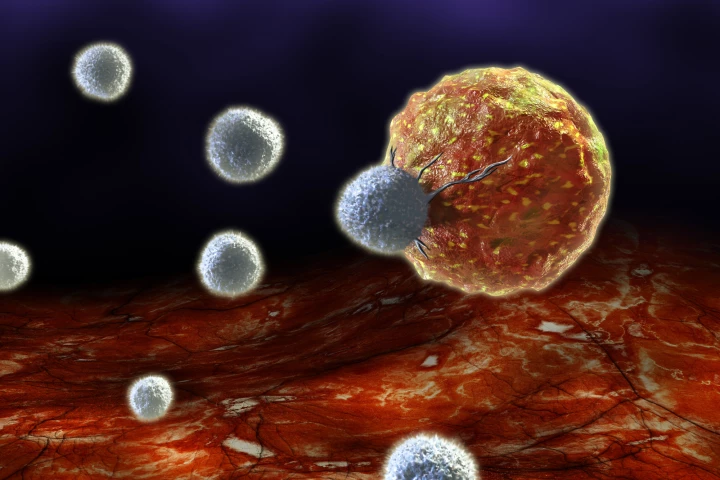Melanoma
-
The number of people carrying an inherited mutation that predisposes them to melanoma is seven-fold higher than previously thought, according to a new study. Medical practitioners are urged to consider cancer risk factors beyond sun exposure.
-
A study has found that a cannabis extract can inhibit the growth of melanoma cells and trigger cell death. The next step is pre-clinical trials to investigate whether the extract can be used to treat other types of cancers.
-
Scientists have demonstrated an intriguing new technique to treat cancer – “molecular jackhammers” that latch onto cancer cells, then vibrate vigorously to kill them when activated by infrared light.
-
Moderna has announced results of a Phase 2b trial of its mRNA treatment for skin cancer. When paired with immunotherapy, the treatment significantly reduced risks of recurrence, metastasis and death, paving the way for trials against other cancers.
-
Researchers have developed an automated platform that they've used to screen thousands of drugs and identify those that can be used to interrupt the spread of melanoma. The approach could help identify promising drugs to treat metastatic cancers.
-
A phase 1 clinical trial exploring the use of fecal transplants to supplement immunotherapy treatment for melanoma has found it to be safe and has the potential to improve patients’ response to treatment.
-
Scientists have developed a new potential treatment for cancer that works in a similar way to the COVID-19 vaccines. The technique involves delivering mRNA molecules to cancer cells and tricking them into producing toxic proteins that kill the tumors.
-
Cancer is the end result of a wide range of problems, and learning how it occurs is key to prevention and treatment. Now, scientists have discovered a never-before-seen cancer-causing mechanism – a kind of clog in a cellular garbage disposal system.
-
Researchers at UCLA have developed a small sponge that can be implanted next to a tumor to help the body fight it. In tests in mice, the devices induced remission, prevented growth and spread of cancers, and increased survival times.
-
A combination of immunotherapy and chemotherapy has shown promise against stage IV melanoma in a new clinical trial. The chemo drug targets a type of cell that suppresses the immune response, and together the two showed an increased response rate.
-
The first results from a trial testing mRNA technology against cancer reveal 44% of patients fared better than those on conventional treatments. The announcement from Moderna reveals Phase 3 trials for its mRNA skin cancer vaccine will commence next year.
-
Researchers have created a new mRNA vaccine for cancer that’s designed to carry its cargo to the lymph nodes rather than the liver. Tests in mice showed significant inhibition of the tumors, with complete remission in a decent percentage of cases.
Load More











